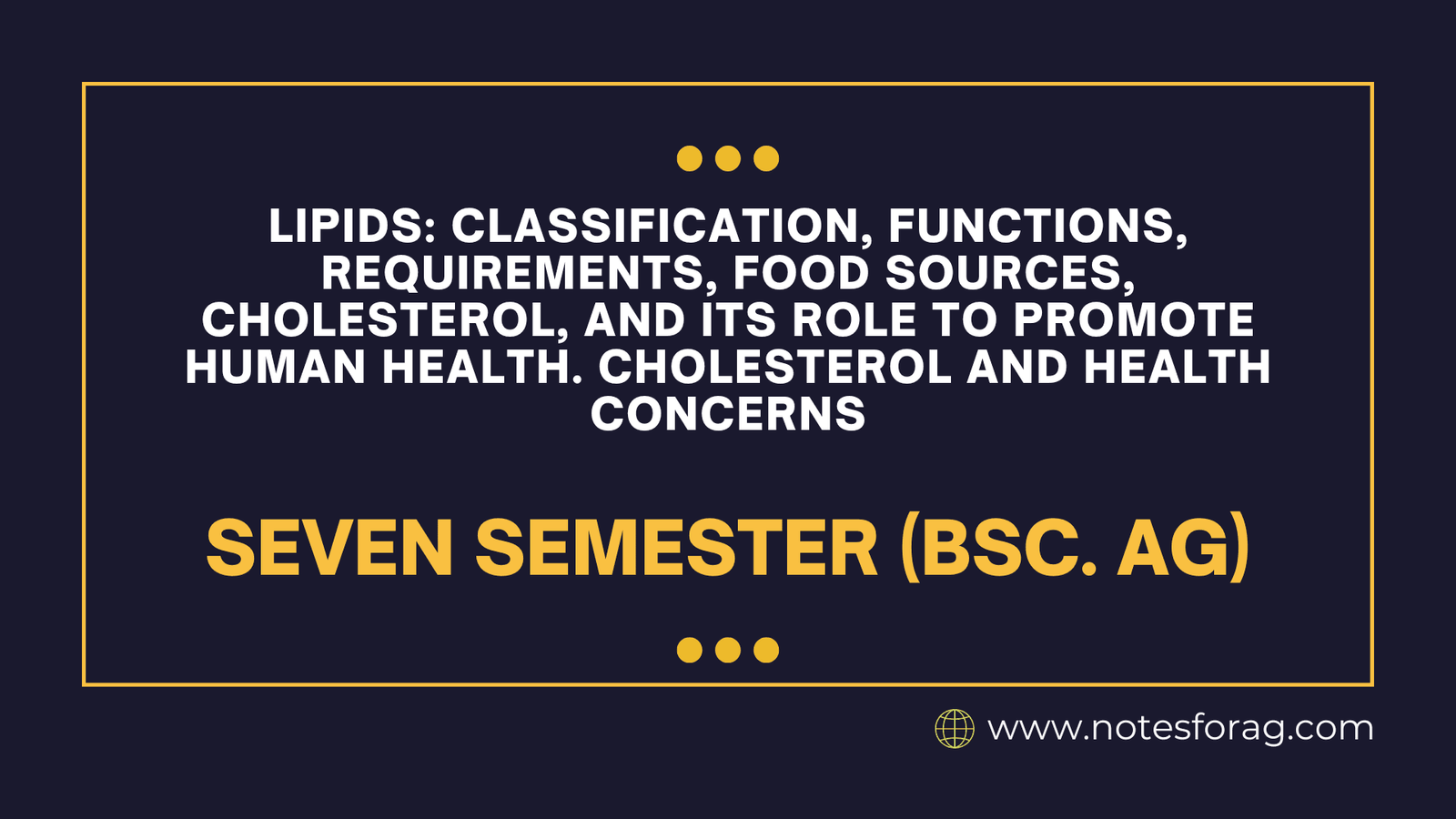Lipids, which include fats and oils, are compounds crucial to various bodily functions, including energy storage, cell structure, and the absorption of certain vitamins. This guide explores the types of lipids, their functions, dietary recommendations, food sources, and the complex link between cholesterol and health.

Table of Contents
Types of Lipids
Lipids are mainly classified into three groups:
Triglycerides

These are the most common lipids found in both the body and the foods we eat. Triglycerides store energy, consisting of three fatty acids attached to a glycerol backbone, and are used by the body as fuel.
Phospholipids
These form an essential part of cell membranes, helping to control the movement of substances into and out of cells. Phospholipids also support cell integrity and function.
Sterols
Cholesterol is a key sterol that is vital to human health. It’s involved in various biological processes, including the synthesis of hormones and vitamin D, as well as contributing to cell membrane structure.
Functions of Lipids
Lipids serve several essential roles in the body:
Energy Storage: Lipids are a dense source of energy, offering more calories per gram than proteins or carbohydrates.
Protection and Insulation: Fats provide cushioning for organs and help regulate body temperature.
Cell Structure: Lipids like phospholipids and cholesterol support cell membrane structure and functionality.
Vitamin Absorption: Certain vitamins (A, D, E, and K) require lipids for absorption, supporting various body functions.
Hormone Production: Cholesterol is necessary for producing hormones, such as estrogen, testosterone, and cortisol, which regulate growth, metabolism, and stress response.
Daily Lipid Needs
The amount of fat needed daily varies by factors like age, gender, and activity level. However, it’s generally recommended that fats make up about 20-35% of total daily calories. Choosing healthier fats, such as monounsaturated and polyunsaturated fats, is advised, while limiting saturated and trans fats can help protect health.
Lipid-Rich Foods
Lipids are found in many foods:
Healthy Fats
Avocados, olive oil, nuts, seeds, and fatty fish (like salmon) are rich in monounsaturated and polyunsaturated fats, beneficial for heart health.
Saturated Fats

Found in animal products like meat, butter, and cheese, as well as tropical oils like coconut and palm oil, saturated fats should be eaten in moderation.
Trans Fats
Often present in processed foods and fried items, trans fats are harmful and should be avoided as much as possible.
Cholesterol
Found in animal-based foods like meat, dairy, and eggs, cholesterol intake should be balanced, as too much can impact heart health.
Cholesterol: Importance and Health Implications
Cholesterol is a type of lipid that is both made by the body and consumed through food. Though it often has a bad reputation, cholesterol is vital for several bodily functions:
Essential Role in the Body
Cholesterol contributes to cell membrane structure, aids in hormone production, and is necessary for synthesizing vitamin D. While the liver produces sufficient cholesterol for the body, additional amounts come from food sources.
Cholesterol Types
Cholesterol is carried through the blood by lipoproteins, primarily as:
Low-Density Lipoprotein (LDL)
Known as “bad” cholesterol, high levels of LDL can result in plaque buildup in arteries, increasing the risk of heart disease.
High-Density Lipoprotein (HDL)
Known as “good” cholesterol, HDL removes excess cholesterol from the bloodstream, transporting it to the liver for disposal, helping to prevent artery clogging.
Health Risks of High Cholesterol
Elevated levels of LDL cholesterol are linked to cardiovascular conditions like heart disease and stroke. Over time, plaque deposits in arteries can reduce blood flow, leading to serious health risks. Regular exercise, a balanced diet low in saturated and trans fats, and stress management can help keep cholesterol levels within a healthy range.
Diet and Lifestyle Advice
A diet rich in fiber, whole grains, fruits, and vegetables can help lower LDL levels. Choosing unsaturated fats over saturated and trans fats also supports healthier cholesterol levels.
Final Thoughts
Lipids, including cholesterol, are essential for health but need to be consumed wisely. By choosing healthier fat sources, reducing intake of saturated and trans fats, and staying active, you can support your body’s lipid needs and protect against high cholesterol-related health risks. With proper management, cholesterol supports many critical functions that contribute to overall wellness.
Frequently Asked Questions (FAQ)
What types of fats should I limit or avoid?
Saturated fats, found in animal products (like meat, butter, and cheese) and some plant oils (like coconut and palm oil), should be limited. Trans fats, often present in processed and fried foods, should be avoided as much as possible since they are harmful to heart health.
Why is high cholesterol a health concern?
Excessive LDL cholesterol can lead to atherosclerosis (plaque buildup in the arteries), which restricts blood flow and increases the risk of heart disease and stroke. Managing cholesterol through a healthy lifestyle can help lower these risks.
Related Articles

